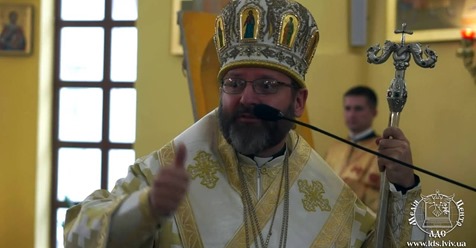 From a 2016 sermon of His Beatitude Sviatoslav of Kyiv and Halych:
From a 2016 sermon of His Beatitude Sviatoslav of Kyiv and Halych:
Today’s question is: What does it mean to be a faithful member or believer of the UGCC? This is a question of identity of the Church and us. The Kyivan Church of the third millennium—who are we? What do we do as members of this Church?
Here in our midst are members [of the Church] from the whole world. We have with us brothers and sisters from Australia here today. This question has broad answers. What makes us Ukrainian Greco-Catholics? Being Ukrainian? Today about 1/3 of our parishes in the diaspora [in North and South America, Western Europe, Australia] are comprised of members not of Ukrainian heritage and who don’t speak Ukrainian. This is why we translated our new Catechism into languages they understand: English, Portuguese, Spanish, Russian, many others….
What is the mark of identity of the UGCC? To be Galician? I tell you as the Major Archbishop of Kyiv, no! There are many who want to make our Church into a Galician enclave in the Western part of Ukraine. His Beatitude Lubomyr once said something very interesting: “we need to put aside the heresy of being just Galician.” [Let me assure you, I say this with all respect, being a Galician myself.] Our identity, the identity of our Church is faith in the salvific things that our God has placed in the history of the Kyivan Church and all the good things and gifts and treasures from God: theological, liturgical, artistic.
Today we must spread these to the whole world.
And today when our missionaries leave the Lviv Theological Seminary [where the homily is being given] to occupied areas, in Crimea, or to Melbourne or to India, they can think to themselves… I am going to find [seek out, like lost sheep] Ukrainians, I am going to call back the lost sheep of Ukraine.
But Christ is calling us to something higher. He says go and make disciples of all nations, baptizing them in the name of the Father, and of the Son, and of the Holy Spirit. This is what it means to be Greco-Catholic, faithful member of the Ukrainian Greco-Catholic Church.
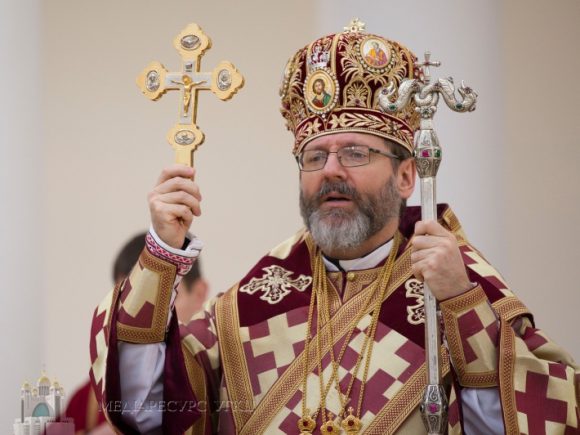
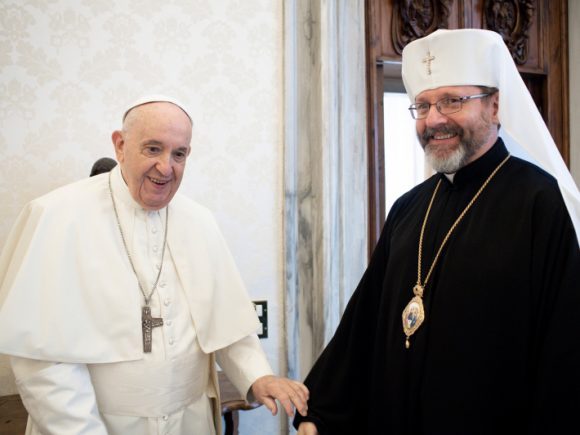
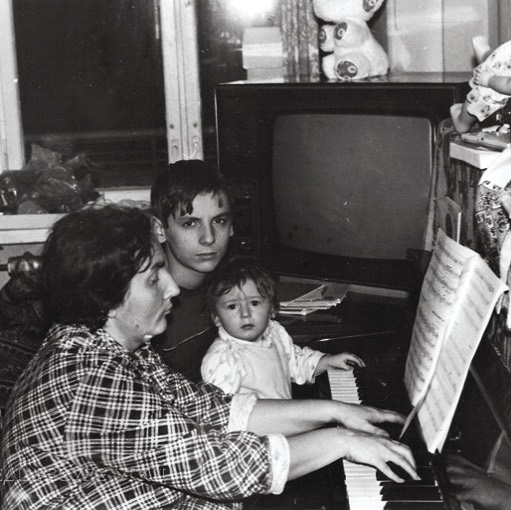
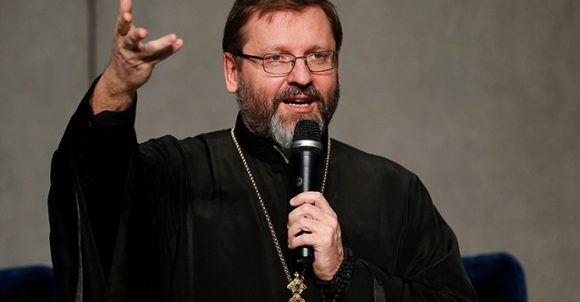
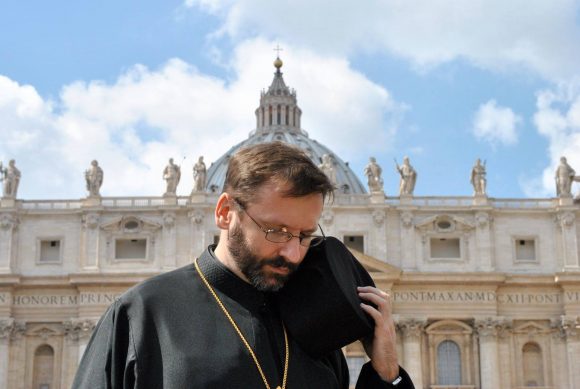
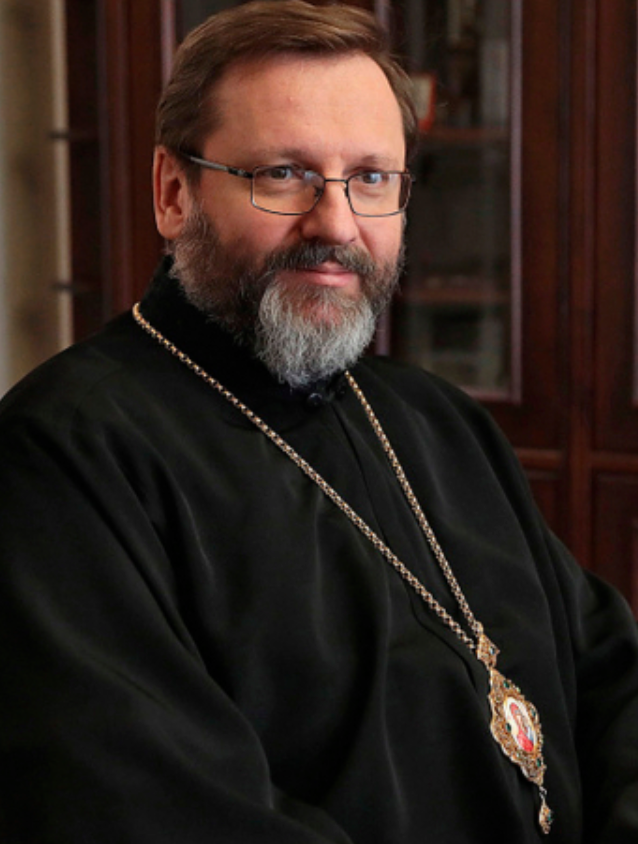 Palm Sunday, the day of Christ’s triumphant entry in Jerusalem, is traditionally for me and the entire leadership of our Church an opportunity to address you with a special letter. I always cherish this opportunity because I consider it a special privilege to reflect together and with you seek answers to questions and needs, which I have heard expressed at various encounters and conversations with you throughout the year.
Palm Sunday, the day of Christ’s triumphant entry in Jerusalem, is traditionally for me and the entire leadership of our Church an opportunity to address you with a special letter. I always cherish this opportunity because I consider it a special privilege to reflect together and with you seek answers to questions and needs, which I have heard expressed at various encounters and conversations with you throughout the year. From a 2016 sermon of His Beatitude Sviatoslav of Kyiv and Halych:
From a 2016 sermon of His Beatitude Sviatoslav of Kyiv and Halych: